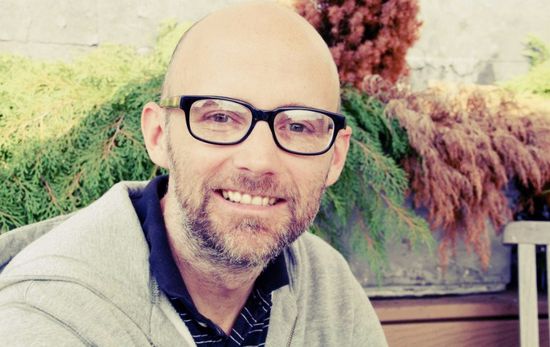Moby’s Philanthropic Restaurant is Latest in a Lifetime of Animal Welfare Work
/
Over the years, Moby has traded in the club life for chic restaurants, but giving for animal welfare has remained front and center for this 1990s super-DJ.
You have to give Richard Melville Hall, better known as one of the lasting celebrities from the 90s electronic music wave, credit for his convictions.
He’s probably just as identifiable for his almost 30 years of veganism and animal welfare support as he is for that one song with Gwen Stefani. Moby’s had some ups and downs in his career, selling more than 20 million albums, trying his hand as a writer and photographer, and cleaning up after a rough patch with drugs and alcohol.
But the dedication to animals, and some other charitable causes, has persevered through it all. As he put it in a recent interview with Forbes, “Animal welfare work is my life’s work. Music is what I love.”
His latest philanthropy flows through an interesting mechanism he’s set up at his new restaurant in Los Angeles, where he moved from New York in 2010. In November, he opened Silver Lake's Little Pine, a vegan restaurant that he manages day-to-day. Every week that Little Pine surpasses the break-even point, Moby donates the remaining profits to a set of animal welfare organizations.
Related:Leonardo DiCaprio’s Giving Just Got Way More Interesting
The profits from the restaurant benefit the Humane Society, Mercy for Animals, Sea Shepherd, PETA, Animal Legal Defense Fund and a handful of others to the tune of about $250,000 this year, Moby estimates.
This isn’t his first foray with giving to charity, and he’s more than once established clever ways to integrate the causes he cares about into his life and work.
For example, his website Moby Gratis licenses a selection of his music for free to indie filmmakers, and if money is generated, it goes to the Humane Society. In fact, he says much of the money he earns from licensing his music for commercial use goes to the Humane Society—and that could be a lot, considering 1999’s Play was the first album to license every single track for use in film, ads or tv.
He’s participated in several auctions, events and concerts to raise money and awareness for animal welfare, transcendental meditation, Internet neutrality, drought relief, etc. Other causes he’s supported include MoveOn.org, Animal Wellness Foundation, and the no-kill animal sanctuary Best Friends Animal Society.
Moby has actually caught flack for being so upfront about his causes, and has copped to being standoffish about them in his youth, which has mellowed some with age, he says.
But I think one of the notable things about his philanthropy is how it’s been so connected to his career, but clearly not PR move. We’ve recently learned about Prince’s private justice and environmental giving. By contrast, Moby is quite open about his causes, meaning he’s aware that he has a platform for influencing people. But he’s also careful not to showboat. You can tell it's just sort of what he does.
Related: What Should We Learn From a Dying Philanthropist?
He says in one interview with Issue Magazine about his charity work: “All we can do is—I mean, this is hopefully what informs a lot of my philanthropy—do the best with what we have but without too much hubris or self-importance.”
I also appreciate the way he integrates his causes into his life, not an afterthought or a coldly calculated formula. The effective altruism movement might disagree, but it's something we always liked about the late Sam Simon's giving, as well—it really is from the heart.
As he told Forbes: “Little Pine represents my interest in organic food, architecture and design, animal welfare and veganism, as well as community. It’s a way of doing them all in one place."








